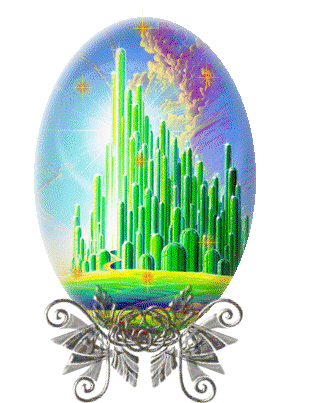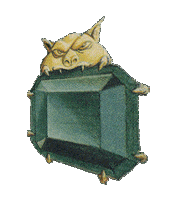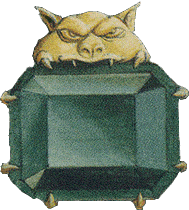
Fast Lanes, Slow Lanes
By stsully
April 8, 2019
I came to know about Old School roughly a year ago when, after finally losing my interest in chasing the Modern and Legacy metagames (and seriously, fuck Standard), I decided just to start collecting cards I liked from back when I started playing in '95. Soon after, I made a deal on my first ever piece of power, a Jet, and the person I was getting it from asked me if I was getting into Old School. "What's that?" I said. I had never heard of such a thing. I was just fulfilling a lifelong dream of owning power.
He ended up bringing a few decks with him when we met up to do the deal, and while we didn't have time to play, once I saw Savannah Lions and black-border Tundra Wolves in one deck and Llanowar Elves and Force of Nature in another, I knew this was a thing I was going to need to learn more about.
Fast forward a few months and a lot of swapping Modern/Legacy bling for OS cards, and I had my first deck. A RUB Troll Disco list with blue power, Lotus, Moxen, Library of Alexandria, and a bunch of other broken stuff. I even squeezed in a Juzam Djinn, one of my favorite cards I never owned as a kid but finally found a place to play.
The deck was pretty strong in local play, and I managed a 5-3 record in my first big Old School event, the 2018 Winter Derby. I was proud of that. But the more I played, the more I realized winning matches wasn't really what I wanted. Or rather, it wasn't the only thing I wanted. I would have never left mainstream Magic if I just wanted to try and win matches. There was a fun element I wanted to find too.
Once I was paying more attention to genuine fun, I saw that unlike the Spike-driven mainstream formats, Old School was home to players with a much more varied set of goals. I saw that my Troll Disco deck was in kind of an Old School "fast lane," where people were indeed trying to build the best deck possible and win as many matches as they could. But there were also other, slower lanes, with whole contingents of people playing Giant Growth and Berserk on Scryb Sprites, or keeping a Rocket Launcher firing with Guardian Beast, or Titania's Song-ing (Singing?) a bunch of prison artifacts into an alpha strike. These people were still trying to win, but they were trying to do so with style and in creative ways. Importantly, they were choosing to play these kinds of things, not just settling for less-than-tier-1 decks because they had to (or because they were wasting their time, a reforming Spike might think :) ).
For a lot of people, especially those who've been in Old School longer, the existence of these slower lanes is probably not surprising. In fact, for many, these lanes are the whole point of Old School: "Screw big tournaments and netdecking and prizes, let's be creative, have fun, and donate to charity to boot."
But for me, that was a revelation! I had practically forgotten this kind of Magic was possible after years of conditioning by mainstream Magic. When I had returned to Magic in earnest during Innistrad, the only thing I ever heard anyone talk about was fast lane stuff. Which of three netdecks was optimal, what's the metagame gonna be, which new cards are going to make which archetypes broken/unplayable, this card is strictly better than that card, what's the best way to make the PT, how come Wizards loves/hates affinity/dredge/aggro/control/my pet deck, etc., etc. So, I just assumed that was how Magic was now, and I followed suit. I netdecked, Spiked, bitched about Planeswalker abilities that were too powerful or not powerful enough, and cared a lot about things like going 4-0 at Friday Night Magic or prereleases (since I was past the point in life where something like making a PT was even a remote possibility). That was fun for a time, but eventually it got old.
None of that was the Magic I grew up with, because the slow lane was the only lane I could play in back in '95. I didn't have power or tons of duals or any of the other cards that defined Type I, so I played Type II. I whipped up mono-green fatties topped by three Craw Wurms and a Force of Nature, jealous of my friend's deck with three Shivan Dragons in it. I traded away dumb cards like Jayemdae Tome to get good stuff like Uncle Istvan (white border of course). I went to my first real tournament and jammed my Nether Shadow, Ashen Ghoul, Krovikan Horror, Skull Catapult deck. I loved discovering Old School's slow lane because that was my home. That was what I fell in love with as a 13-year-old kid, and yet somehow it took me a long while to see that kind of Magic thriving and even celebrated in Old School.
I didn't see it when I was building that first fast lane Troll Disco deck, but the slow lane was the invisible hook that got me into Old School in the first place. When I saw some of my favorite cards from childhood back in a deck, with someone sitting across from me excited to tell me all about it, that was what I was missing. Twenty-plus years is a long time, and I had forgotten what it felt like to play those cards. Old School was a place I could re-live those memories and feelings. To play in the slow lane for the sake of doing something sweet and nostalgic. Yeah, this basically makes Old School my mid-life crisis, but I'm cool with it. Better cardboard than a blonde and a Corvette.
On the other hand, though, during my forays into Modern and Legacy, I also kind of developed a liking for the fast lane. There was also something enjoyable about building an objectively strong deck, pitting it against other objectively strong decks, and trying as hard as I could to win against someone else doing the same. Magic is also a really well-designed strategic test, a chance for two people to compete all-out, mind-to-mind, and see who wins. As an inherently competitive person (I did still really like winning those slow lane games as a kid), I realized I wanted the fast lane to be a part of my Old School experience sometimes too.
Because I like both slow lane and fast lane games, it's important to calibrate my decks, my gameplay, and my overall goals based on what lane I'm actually playing in. I have competitive fast lane decks and fun slow lane decks, so I try to choose what feels right for each specific event. While playing, I might be faced with trying to find the objectively best line in a complex board state, or just playing the most fun or obvious line. Which way to go is a decision based on several factors, but a key aspect is what I think my opponent would do in my shoes. In terms of goals I have at a given event, I can set my sights on trying to win every match, or I can try to swing for 22 with a Berserked pumped Shivan at least once. Choosing goals is a personal decision, usually depending on what I know about the other attendees, the event, the location, and how I'm currently feeling. But I try to pick goals that feel right for the event, and also to enjoy the pursuit of the goals a bit more too.
I like to play all of these different ways as long as I am in the same lane as my opponent. It's no fun to stomp a casual tribal deck with Troll Disco. Nor is it fun to get Mind Twisted for six on turn 1 while playing my Mana Flare and fatties fun deck. I can't imagine either case is that fun for my opponent too. Who wants to get locked out by The Deck when they're just trying to resolve an Elder Dragon? Conversely, who wants to dunk on someone who only wants to see their 4-card combo go off in one out of five games?
Matching speeds with my opponent is, for me, the key to having fun. Presumably fun is why we're both there: having fun playing a game together. I'm a pretty flexible person socially, so I take it on myself to try and match speeds. I try to choose a deck that feels right for the setting. I banter with my opponents to figure out how serious they are (and hopefully learn that, even if they are serious, they won't mind when I crack a joke or two). I watch their first few turns to see if they want to play more casually with takebacks and talking about our possible plays mid-game, or if they want to try and play really tight. Then I try to do the same.
At the risk of mixing metaphors, think of a match as a dance. Dance partners have to be on the same page to do much, so it makes sense to try and figure out what dance an opponent is up to. Did they come to waltz? Tango? Charleston? Mosh? I have the most fun when we both know what steps we're trying to take. Then we can both just dance the best dance we can, even if our shoes (aka our decks) will make it a bit harder than normal. If it's not a great dance, that's fine, we learned something about each other. Next time we'll have better shoes and/or be a better partner. Or we'll find different partners.
People come to Old School in a lot of ways. Some, like me, find their way there from mainstream Magic because they are looking for something different than the pure fast lane thinking that dominates the scene. Others might go straight into Old School after twenty years away because it recaptures the essence of the kitchen table game they loved before Black Summer, say, drove them away. Our different backgrounds can color the way we see Old School, and sometimes they can cause our goals to be misaligned during a game without us even realizing it.
It's important to take ownership of one's own role in the things one wants to improve around oneself. That means making it my job to try and be a good opponent, not only a good player. That means not forcing my preferred kind of game onto my opponent, nor judging them for theirs. One of the greatest things about Magic is that it is so many different games in one. We just have to make sure we and our opponent are playing the same one.
One last related point I'll make is about what, in my humble, new-to-the-community opinion, is the "right" way to play Old School. It's not Spikey, or spicy, or ultra-casually. It's mensch-y (disclaimer, I'm not Jewish, but Yiddish really nails some concepts). Be a good person, try to meet your opponent on common ground, and assume that, until they give you incontrovertible evidence otherwise, they are not an asshole ("Most Respectful Interpretation"). I've seen value judgements made on other people just because of how they are approaching the format (and yes, I've even made a few of these myself before I learned better). We as humans are far too ready to turn "I disagree with your opinion" into "you're wrong." Letting ourselves do that is a huge mistake. When we do that, we take a difference between our and someone else's opinions, then generalize it all the way into a statement about who they are as a person. "You are wrong." Wow. What an incredibly demeaning, confrontational thing to say, describing a person -- not their opinions or actions -- as wrong. It might seem like just a little thing or a quirk of language, but in my experience, the specifics of the words we choose are really important to how people perceive us and how our relationships work (or don't). Learning to recognize an instinct to call people "wrong" and choosing not to do it is important to becoming not just a better Magic opponent, but a better person. If someone's opinion on the game is different from yours, acknowledge the disagreement, but then let that go. Don't generalize that evaluation into the way you view this whole person. Try to get into the same lane as your opponent, run a fair race, and have some laughs along the way. Be a mensch.

